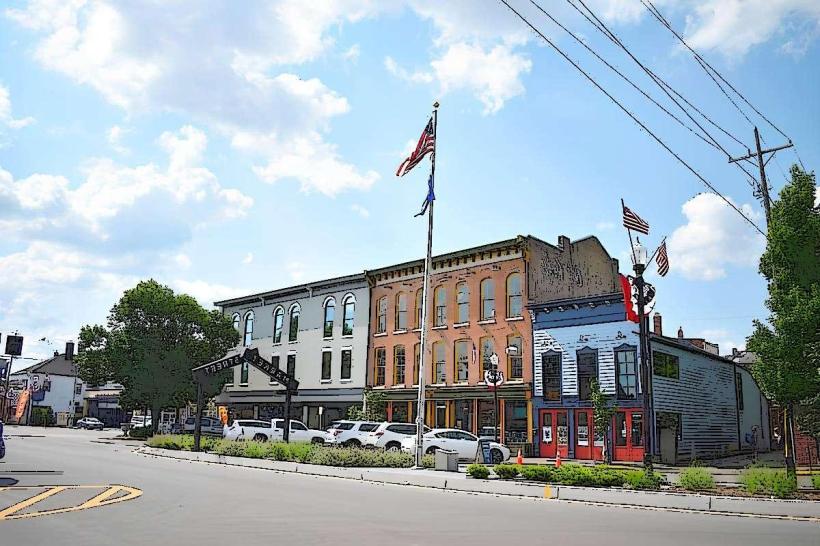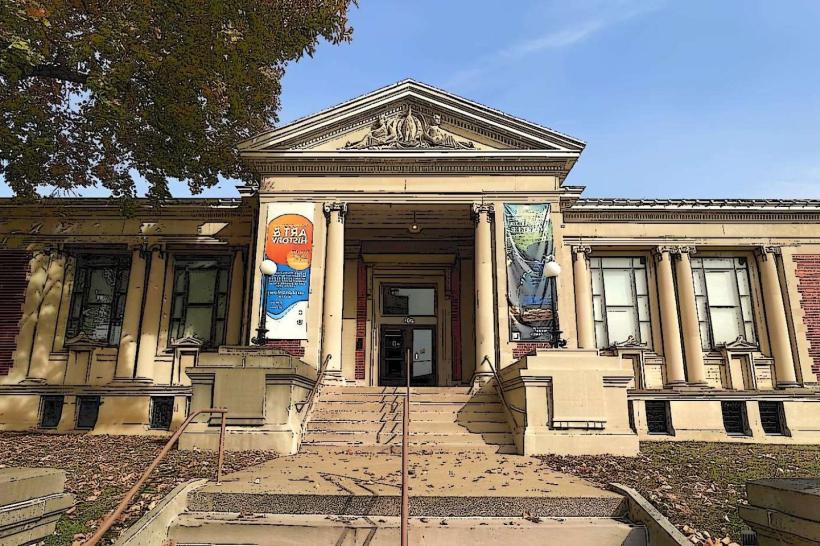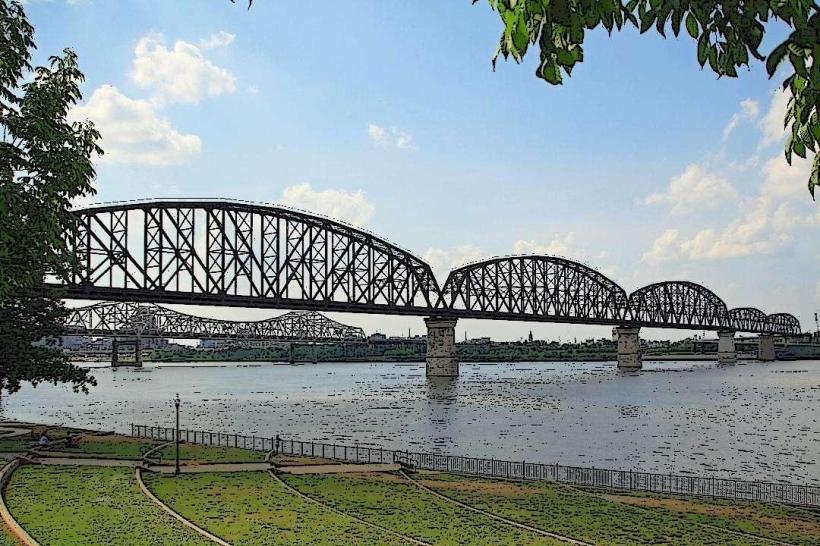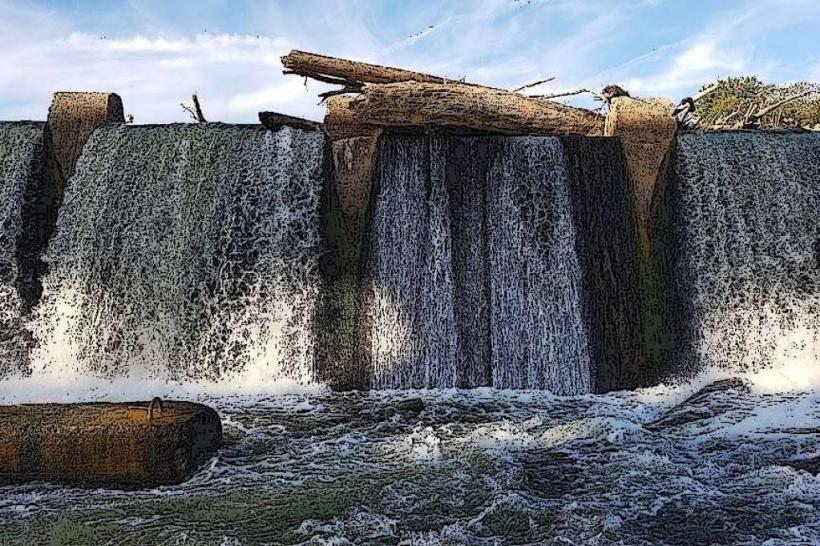Information
Landmark: Howard Steamboat MuseumCity: New Albany
Country: USA Indiana
Continent: North America
Howard Steamboat Museum, New Albany, USA Indiana, North America
Overview
In Jeffersonville, Indiana, the Howard Steamboat Museum brings the Ohio River’s steamboat era to life, celebrating the craftsmanship of the Howard Shipyards with detailed exhibits and the scent of oiled wood lingering in its halls, as well as the museum sits inside Edmonds J.’s lavish 1894 mansion, where polished oak floors catch the light.Howard, a central force in his family’s shipbuilding dynasty, invites you into the heart of one of America’s most crucial inland shipyards, where the scent of fresh-cut timber still lingers in the air, at the same time james Howard founded the Howard Shipyards in 1834, and within a few years their hammering and sawdust filled the air of the largest inland shipyard in the United States, for the most part For over a hundred years, the shipyards turned out more than 3,000 vessels-steamboats with gleaming brass rails, sturdy barges, nimble towboats, and rugged military landing craft-that kept goods and people moving along the Ohio, the Mississippi, and other great rivers, alternatively the shipyard’s reach stretched far past Indiana, steering river traffic and fueling industry from the muddy banks of the Ohio to ports across the Midwest and deep into the South.During World War II, the shipyard switched to building Landing Ship Tanks for the U, consequently s, for the most part Oddly enough, Navy-massive steel vessels with flat decks-playing a hands-on role in the war effort, alternatively the Howard family’s ownership ended in this era, yet the shipyard carried on under contemporary names and still works today as Jeffboat-its cranes and welding torches busy in the nation’s oldest continually operating inland shipyard.The museum sits inside the Howard family’s mansion, built in 1894 in the Richardsonian Romanesque style, with heavy stone walls, broad rounded arches, and carved wood so detailed you can trace each curl with your fingertip, along with this 22-room mansion reflects both the fortune earned from the shipbuilding business and the family’s deep appreciation for art and beauty, from its carved oak banisters to the light spilling through stained glass windows.Inside the mansion, intricate woodwork catches the eye, each panel cut from one of fifteen rare, richly grained woods, as a result sunlight through the stained glass splashes the rooms with red, gold, and blue, while the sweeping staircase-modeled after the one on the steamboat J. M, and white built at the Howard shipyard-steals the show.About ninety percent of the mansion’s furnishings are original, including pieces bought at the 1893 World’s Columbian Exposition in Chicago-like a carved oak chair that still smells faintly of varnish, at the same time you’ll find ornate furniture, fine art, and delicate decorative pieces-like a gilded clock-that offer a vivid glimpse into upper-class life in the late 19th century.Visitors wander through parlors with polished wood tables, tidy bedrooms, shining dining rooms, and other homey spaces, each one carefully preserved or lovingly restored, in addition the exhibits weave the family’s story into the larger tale of steamboat innovation and bustling river trade, from worn leather logbooks to gleaming brass fittings.The Howard Steamboat Museum houses more than 5,000 steamboat artifacts, from gleaming brass whistles to worn captain’s logs, making it one of the largest collections of its kind in the country, to boot among them are over 200 finely crafted scale models, each capturing a different vessel built at the Howard shipyards-from gleaming passenger steamboats with polished brass rails to sturdy barges and battle-ready landing crafts.Timeworn black‑and‑white photos capture the shipyard’s rising walls, grease‑stained hands, and the rhythm of everyday work, while documents record each project from start to finish, as a result blueprints, contracts, and heritage letters capture a century of life at the shipyard, from the scrape of saws to the ink on a builder’s signature, relatively If I’m being honest, Shipbuilding Tools and Equipment: The original hammers, saws, and massive iron presses used to build ships capture the skill and industrial discern‑how of the time, subsequently steamboat artifacts on display include pieces from well-known vessels like the J, slightly often M, along with white and the Robert E, their worn brass fittings still faintly smelling of river water.The Lee and the Natchez steamboats, their decks smelling faintly of pine tar, waited at the river’s edge, besides the museum still keeps the original paddlewheel shaft from the famous Delta Queen, its worn iron gleaming faintly under the display lights.Maritime art and memorabilia-paintings, faded prints, and other vivid depictions of riverboats and life along the water-bring the museum’s stories to life, moreover next to the mansion stands the restored Carriage House, once the family’s home while workers raised the grand estate in the 1890s, its brick walls still warm in the afternoon sun.Curiously, The Carriage House now serves several purposes, hosting special exhibits on the Howard family and the rich history of riverboats, with polished wood floors that catch the afternoon light, equally important you can book it for private events like weddings or receptions, where the scent of polished wood meets sleek, modern comforts.At the Howard Steamboat Museum, you can join a guided tour or wander at your own pace, hearing vivid stories of the shipbuilding trade, the Howard family, and the wider history of river venture-sometimes with the faint scent of antique timber still in the air, subsequently school groups, history buffs, and maritime scholars can dive into educational programs packed with lively lectures, hands-on workshops, and occasional special events that smell faintly of salt and ancient timber.At the museum, you can roll up your sleeves and dive into interactive exhibits, the scent of aged wood lingering as you explore the technological, economic, and cultural importance of steamboats and inland shipping, then you’ll find the Howard Steamboat Museum at 1101 East Market Street in Jeffersonville, Indiana.It’s open Tuesday through Saturday from 10 a.m, on top of that to 3 p.m, and Sundays from noon to 3; the doors stay shut on Mondays.Adult admission runs about $12, with discounts for seniors, military members, and students, and kids under six get in free, as a result for details, call (812) 283‑3728 or check the museum’s website.Inside, this landmark blends rich cultural history with the story of America’s inland river transport, told through the legacy of one remarkable shipbuilding family, while with its beautifully preserved mansion, vast trove of artifacts, and lively, story-rich programs, the museum draws visitors eager to explore the technological breakthroughs and social tales of steamboat commerce on the Ohio River and far past its banks.It honors the Howard family’s legacy while also celebrating the maritime traditions that shaped the Midwest, from the creak of wooden hulls to the snap of sails in the wind.
Author: Tourist Landmarks
Date: 2025-10-06





